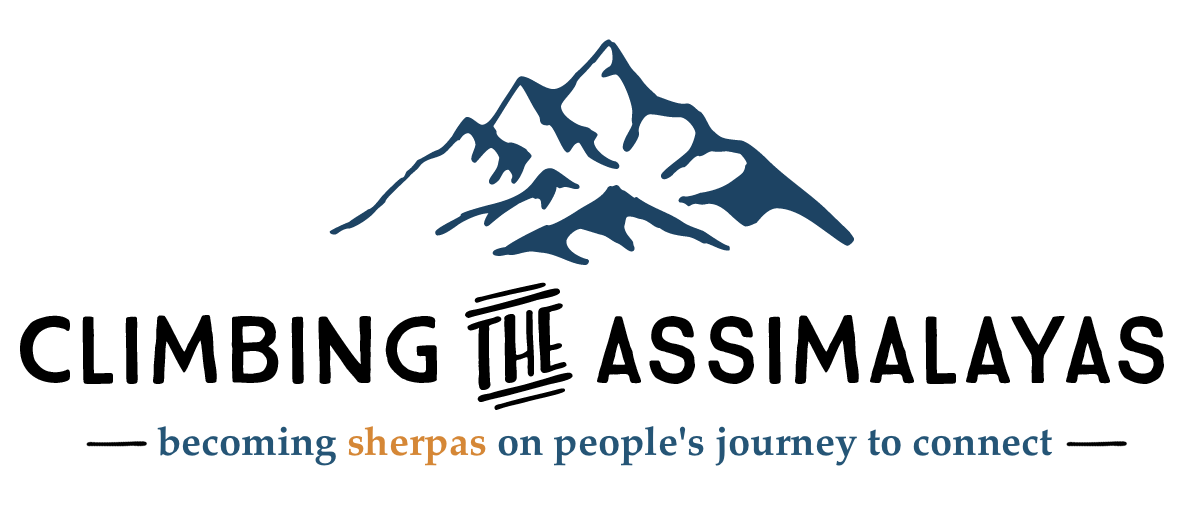The 2nd mistake many churches make when assimilating guests
Mistake #2 Offering a class
Have you ever took a "free" vacation to a time share resort? You go because you feel the need for a break, have the need for a deal, and are willing to pay the price which is sitting through a presentation and a pitch for a few hours-one that could result in your buying-in to the "resort lifestyle". If you are like me, you have been willing to pay that price as long as they a willing to hear a "No" at they end of it.
Despite our aversion to this experience, this is unintentionally how we treat guests when they want to become part of our church. They get sold on a life full of grace from God, community with his people, and a purpose for living by following Jesus. The price? Sitting through a 4 to 10 week class to find out all we want them to know about our church and ask them to join it, tithing and volunteering strongly suggested.
It wasn't that long ago that we had a class like that. Don't get me wrong: the material was solid, biblical, and comprehensive. It was taught by men who knew how to teach and were compelling to be around. But one time we started with 87 attendees and ended with 14. Truth is, like a couple at a time share resort, nobody really wants to hear the presentation.
So what's the solution?
Give them an experience, not a class.
Many of our guests are finding their way back to God, much less church. Why reduce the experience of encountering Jesus and the community of his followers to 6 one-hour classes with notebooks, rows of chairs, and a teacher?
That's why we have the First Step Experience at Eastside. It last 7 weeks, though the number of weeks is less important than these facets:
It is offered during church so a full children's program is provided and they don't ave to extend their day or come back at a different time.
The emphasis is training in following Jesus, not information about Jesus we want you to sign off on.
Week 1, everyone gets a backpack, because this is going to be a journey, not a class.
Each week they are given a new object for their backpack that enhances the training they are receiving in some way.
They sit at tables (not in rows) with the same people each week to make friends and process the training through discussion and at times even prayer.
They have fun! There are creative competitions each week with cool prizes (coffee mugs, movie tickets, gift cards, etc.) that are given to each person at a table of one of their table members wins. The competition gets fierce!
They are given assignments to experience and discuss that teach them how to read the Bible for themselves, share their story with others, and explore their unique call to ministry.
After 7 weeks, they don't want it to be over. 1/3rd to 2/3rds of the tables launch as small groups at the conclusion and the majority are already being placed in a volunteer position.
After transitioning our class to an experience 3 years ago, more than 1 out of 6 guests that visit Eastside end up a graduate of the First Step Experience. Our last First Step Experience alone graduated 126 new members to our church.
First Step Bingo, where guests get to know each other by finding others in the room who fit the descriptions on their bingo cards on week 1.
It doesn't matter what you call it, or how many weeks it is. It just has to grow their faith, help them make friends, and allow them to have fun while they do it. Learn how to create a program like this by taking my Video Course, or schedule a Climbing the Assimilayas Base Camp, where we can explore how to create this kind of environment for your guests and give you access to all our leaders note, guest materials, objects, competitions, session videos, and more. At the end of the Base Camp, I will help you form a 12 month plan for increasing the effectiveness of your guests assimilation efforts...
...and help you do it by giving them an experience, not a class.
It doesn't matter what you call it, or how many weeks it is. It just has to grow their faith, help them make friends, and allow them to have fun while they do it.
What environment do you invite your guests to to become part of your church? Is it a class or an experience?
Is it offered during the services or after? Is the time inhibiting or increasing attendance?
How many people sign up? How many people show up? How many people graduate?
Do people have the opportunity to form a small group or become a volunteer as part of this experience?
What is one change you could make to transition your environment to more of an experience and less of a class? What resources do you need to make that happen?



